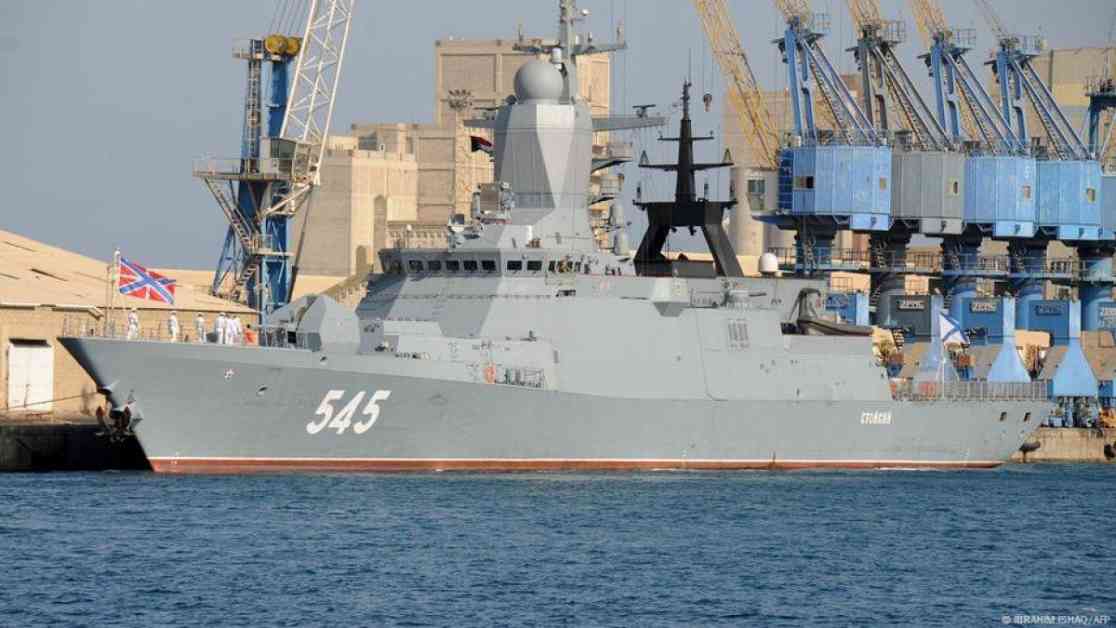Russia’s Influence in Africa Declines after Assad’s Fall in Syria
In a significant turn of events, the future of Russia’s military bases in Syria has been cast in doubt following the fall of dictator Bashar Assad. The naval base in Tartus and the airbase in Hmeimim, the only Russian military outposts outside the former Soviet Union, have played a crucial role in Kremlin’s actions in Africa and the Middle East.
Impact on African Operations
The loss of the military base in Syria will complicate the operations of the Russian Africa Corps, formerly Wagner Group, in Mali, Burkina Faso, Niger, Central African Republic, and Libya. Analyst Beverly Ochieng from the risk consultancy Control Risks in Senegal stated that the al-Qaeda group in Mali celebrated the events in Syria, seeing it as a potential avenue to disrupt the cooperation between Russia and Mali.
The Russian mercenaries have been instrumental in propping up military regimes in the Sahel countries, which now look to Moscow or the Russian Africa Corps for support. With the transition from the Wagner Group to the Russian Africa Corps, led by Yevgeny Prigozhin before his untimely death in a plane crash in August 2023, the Kremlin denies involvement in Prigozhin’s demise.
Stabilizing Junta Regimes
Mali, Burkina Faso, and Niger, all former French colonies, have forced Paris to withdraw thousands of troops in recent years. Initially deployed to West Africa at the request of countries seeking assistance in combating jihadist terror groups, the French troops have been gradually replaced by Russian military personnel and weapons.
With the uncertainty in Syria, Russia may have to postpone the deployment of troops in Burkina Faso and Niger. Ochieng emphasized the need for these countries to start training local forces or find alternative ways to build resilience amid the shifting dynamics.
Strategic Resource Acquisition
In 2024, Russia and Sudan reportedly agreed to establish a naval base in Port Sudan, granting Russia access to the Red Sea. However, Sudan’s political instability amid a civil war and the poor infrastructure in Port Sudan pose challenges to the plan. The conflict in Sudan is crucial for Russia’s battle against Ukraine, as supplying arms to the Sudanese Armed Forces (SAF) and Rapid Support Forces (RSF) has given Russia access to Sudan’s gold mines.
Furthermore, Russian soldiers, many of whom are former Wagner mercenaries, control the Intahaka gold mine in northern Mali, a vital strategic asset long contested by various armed groups. In Niger, Russia actively pursues uranium concessions to reduce French influence over critical resources, as part of its broader geopolitical strategy to challenge Western dominance in African minerals and energy reserves.
Geopolitical Maneuvering in Libya
Libya, logistically closer to the Sahel than Sudan, hosts nearly 2,000 armed Russian personnel as of late 2024. The country, rich in resources, is divided between the UN-recognized government in Tripoli and the rival government led by General Khalifa Haftar in Tobruk, controlling eastern Libya, including Benghazi.
As Russia’s influence in Africa faces challenges post-Assad’s regime fall in Syria, the geopolitical landscape in the region is poised for significant shifts, with implications for regional stability and global power dynamics. The future of Russian military presence in Africa remains uncertain, as Moscow navigates complex relationships and strategic interests on the continent.














